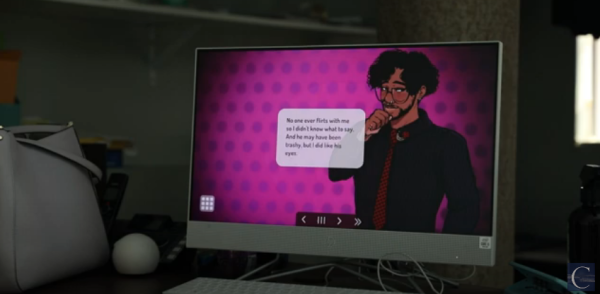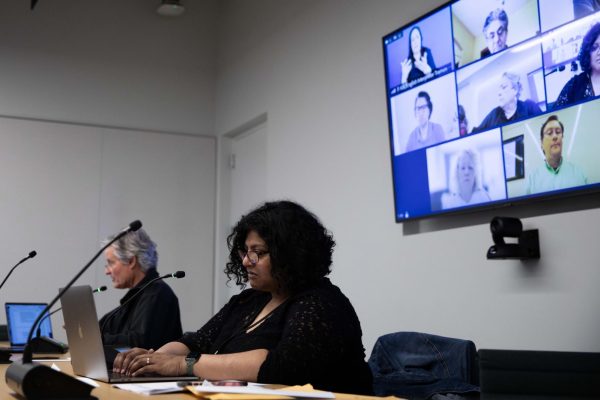The perks of free speech, and how not to use them Billy O’keefe
November 16, 1998
Just when it seemed like I’d run out of anything useful to say, here it comes. An opinion page — an editor’s dream and nightmare all in one, the case study of case studies for those of us who observe life and live to write about it.
In the Oct. 6 issue of University of Illinois-Chicago’s (UIC) student newspaper The Flame, frequent contributor Goud Maragani unloaded his two cents like a rusty magnum with his article, “Good riddance Robert Taylor homes” — a hotheaded, unfinished dish sprinkled heavily with arrogance and contempt while giving us half-baked interpretations of insight, reason and perspective. In his piece, Maragani referred to people living in the projects as “those people,” as folks who “have nothing to do, so they end up spending their entire day milling around and living off public aid.” He went on to say that by tearing these buildings down, we are not damaging a culture, “unless you think living like animals is a culture.”
What’s more, Maragani’s argument had the factual muscle of a book of nursery rhymes printed on tissue paper. Witness the biggest gaffe of all: The buildings Maragani was talking about weren’t even the Robert Taylor Homes but rather the ABLA Homes.
So…did anyone get mad? You could say that. Representatives from the ABLA and UIC communities, as well as members of the International Socialist Organization and PRIDE all protested publication of the article, branding not only Maragani but the entire Flame staff as racist. And while the staff later condemned the piece, their follow-up letter, apologetic but championing Maragani’s right to free speech, only fanned the fire for their opposition.
Everyone from the editor-in-chief to random readers of the paper were labeled as racist. A call was made for Maragani’s termination, while some folks wanted The Flame scrapped altogether.
In the spirit of taking on this issue like we would a math test, let’s get rid of the easy questions first. For example, should the article have been printed? If your answer is “Hell no!” then give yourself a star.
It’s one thing to express your opinion. It’s quite another to stick it in print. Just because we can’t see the line between free speech and respectable journalism doesn’t mean it isn’t there. On top of that, Maragani’s opinion was based on facts that, as we already know, were incorrect in the first place. One wonders if Goud Maragani has even seen the Robert Taylor Homes other than on television.
In fact, Maragani’s work is the epitome of 90s sound-bite journalism coupled with a lifetime of prejudiced values. Is it a safe bet to say that Maragani’s knowledge of the projects comes not from firsthand experience but rather out of sensationalized accounts from television journalism, vague word of mouth and his own assumptions? If his article is any indication, then yes.
That’s the easy part. Even Switzerland would agree with what I just told you. For those of you keeping score at home: get excited, because this is where it gets complicated.
No kidding, the staff at The Flame made a blunder in letting this piece slip by several editors and the entire copy desk. As an editor myself (and of the opinion page, no less), I make similar decisions every week, publishing stories I don’t always agree with or even like because free speech is everyone’s right, not just mine. But still, I’d be nothing more than cheap labor if all I did was cram every article I’m given into each issue; lines have to be drawn. I once received a piece that not only made light of stalking (not talking, stalking); it seemed to romanticize the concept. The author of the piece has a right to be published in some form or another. That article, however, has no place in a crappy fanzine, let alone a college newspaper. The staff of The Flame should have used similar discretion. There’s no excuse for dropping the ball like that.
Poor judgement? Yep. Poor taste? Not a chance. By printing the article, no one on the staff made claims to supporting the piece or even liking it. It is not a reflection of the editors’ tastes or values; thus, how can we even judge them on such merits? Only Maragani can be singled out as having such unlikeable qualities; it was his words alone that ignited this fire.
So then, can anyone tell me why the editors, staff and even readers of the paper are being picked out by protesters as racists? Because I would love to know. Talking about setting your own birthday cake on fire. Activists had a bona fide protest in the palm of their hands, and then they started acting like activists: pointing fingers at any and everyone, using overloaded language (“You’re racist! So are you!”), and — ooh, best of all — tossing assumptions and generalizations everywhere like some drunk blackjack dealer. In other words, the same thing Maragani did in his article.
The fist demand the protesters made was that Maragani be terminated from the paper. At the same time, someone else suggested that the paper itself be terminated. That’ll solve the problem, sure. EXCEPT that firing Maragani does not make him a better, more understanding human being; it merely removes his opinions from view. To call that progress is just stupid. If we can’t hear our opponents, does that mean they aren’t out there? If we hide racism from the public eye, will we ever admit just how much it is hurting this country? Or will we keep on ignoring it until some dim bulb like Goud Maragani makes it temporarily unavoidable for another fifteen minutes?
No, no and yes. The editors are currently trying to please (read: silence) the protesters, who are continually feeding the public with some McSolutions that aren’t really solutions at all. So much for progress. People will soon lose interest as the players prove how ineffective their techniques are. And without an audience to watch them, the activists will soon move on to stories with bigger headlines. Eventually, the issue will subside until it is reincarnated somehow, with all the same problems intact. That’s the way it works; it happens every time. Just remember that it doesn’t have to.








